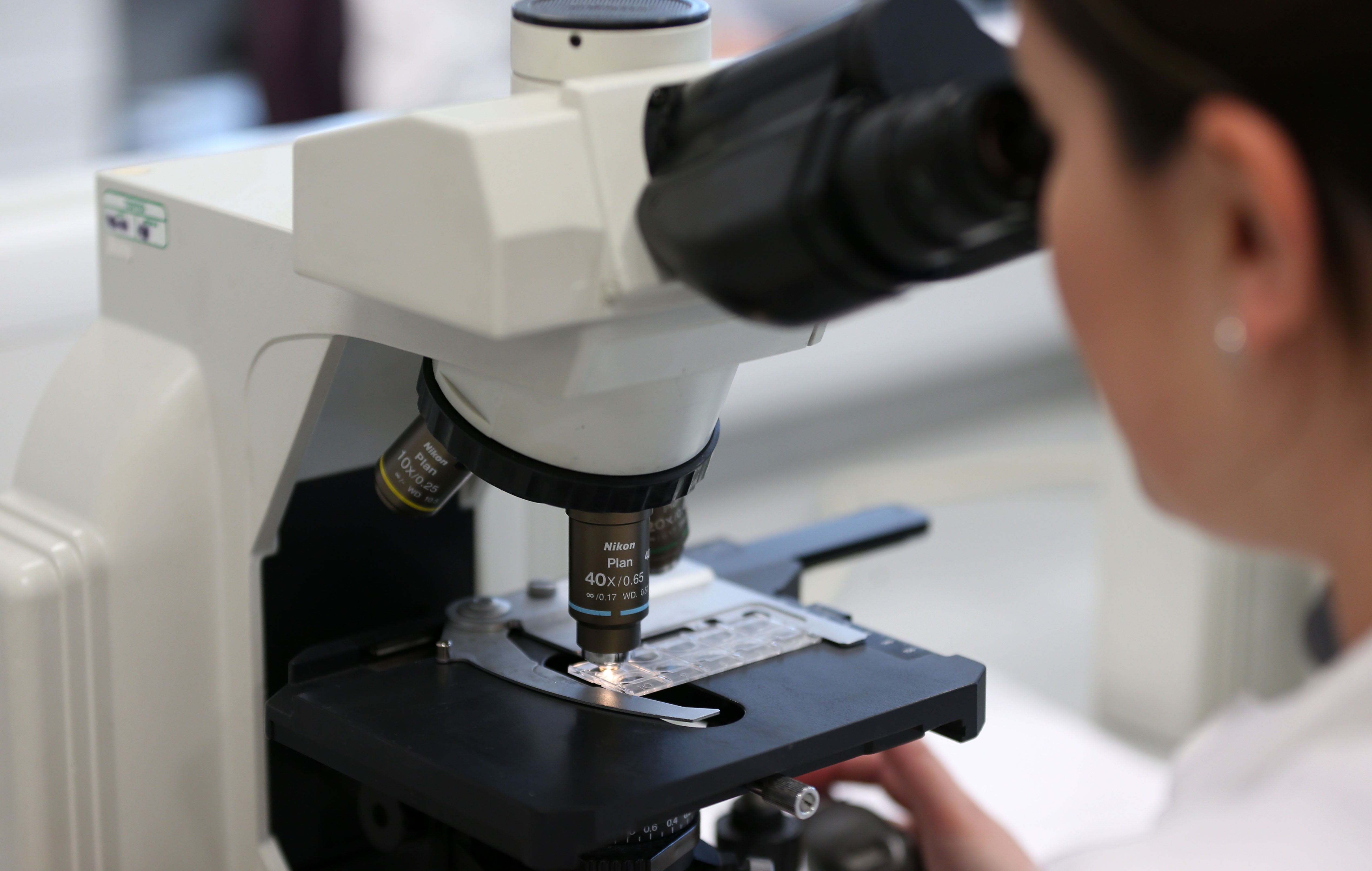Test could predict effective cancer drug combinations in less than two days
Researchers believe the new technology could be crucial in overcoming cancer evolution and treatment resistance.

A new test could take less than two days to predict what drug combinations might work for cancer patients, a new study suggests.
The cutting-edge technique uses artificial intelligence (AI) to analyse data from tumour samples and can more accurately estimate a patient’s response to medication than is currently possible.
The test can be carried out in 24 to 48 hours and the rapid turnaround means it has the potential to help doctors decide which treatment is best.
With a rapid turnaround time of less than two days, the test has the potential to guide doctors in their judgments on which treatments are most likely to benefit individual cancer patients
Researchers believe the technology could be crucial in overcoming cancer evolution and treatment resistance by allowing doctors to analyse how drugs work in combination.
While genetic analysis of tumours can reveal mutations that are fuelling cancer’s growth – some of which can be targeted with treatment – this information alone does not provide sufficiently accurate predictions to select drug combinations.
Study leader Udai Banerji, professor of molecular cancer pharmacology at the Institute of Cancer Research, London (ICR) said: “Our test provides proof of concept for using AI to analyse changes in the way information flows within cancer cells and make predictions about how tumours are likely to respond to combinations of drugs.
“With a rapid turnaround time of less than two days, the test has the potential to guide doctors in their judgments on which treatments are most likely to benefit individual cancer patients.
“It is an important step to move forward from our current focus on using genetic mutations to predict response.
“Our findings show that our innovative approach is feasible, and makes more accurate predictions than genetic analysis for patients with non-small cell lung cancer.”
Scientists at the ICR tested the new technique on individual cancer cells in the lab and tumour cells taken from lung fluid in people with lung cancer.
They used an algorithm to predict how sensitive cells were to individual cancer drugs, and found the technique could predict individual drug responses more accurately than genetic features.
Researchers then used the same approach to predict sensitivity to drug combinations – using 21 different two-drug combinations.
Of 252 total drug combinations, 128 showed some level of synergy, meaning their combined effect exceeded the effect of each drug added together.
Of these, the AI test correctly identified the top five ranked combinations 57% of the time and the top 10 ranked combinations 83% of the time.
Researchers were able to confirm the effectiveness of previously promising combinations, as well as identify possible new combinations.
They suggest this is therefore the first prototype test that can offer personalised predictions of which drug combinations are likely to work in different individuals.
Their study is published in the journal Molecular Cancer Therapeutics and was funded by the National Institute for Health Research, Wellcome, Cancer Research UK and the ICR.
The new study establishes proof of concept but further trials are needed before it can be used in patients.